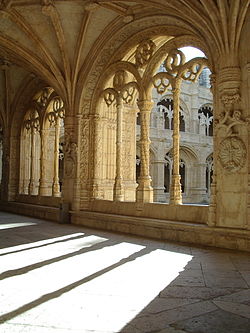
Although Portugal has not had an official state religion for around 100 years, the influences of Catholicism are still readily apparent. About 80 percent of the population over the age of 12 identifies with the Catholic Church. While a large number of citizens are baptized and participate in other significant religious rites of the Catholic Church, only about 19 percent (mostly women and young children) participate in regular religious services. Various other Christian and non-Christian religions make up less than five percent of the population.
Despite the lack of regular participation by the majority of Catholic followers, the influences of the Catholic Church are still seen in the culture and tradition of society in the form of national religious holidays, festivals, and various other ways. Although the political influences of the church have decreased dramatically over the last 30 years, the church continues to be a significant factor with regards legislation and regulations affecting religion and religious organizations.
Since the revolution and the creation of the present constitution in the mid-1970’s, and more recently with the 2001 Religious Freedom Act, religious freedom has been increasing as its value to society has become more fully recognized. While the agreement between the Holy Sea and the country of Portugal (1940 Concordat) remains in effect, the Religious Freedom Act gives equal legal treatment to all established religions and allows them to make agreements similar to the Concordat. The Act also established the Religious Freedom Commission as an independent body to advise parliament on matters pertaining to religion and religious freedom. Among a variety of initiatives to increase religious freedom and tolerance, perhaps one of the most visible ways Portugal is promoting religious freedom is through supporting the creation and broadcasting of religious programing from a variety of religious organizations on the public broadcasting network.
Constitutional Provisions and Ordinances on Religion
Portugal is a civil law country heavily influenced by the legal systems in Spain and France. As a civil law country the majority of the legal attention is on some form of legal code. In the early days of the nation’s constitutional and republican forms of government the code was revised a number of times. After the revolution in 1974 the constitution was ratified in 1976. Portugal has modified the constitution of 1976 multiple times since its initial acceptance; most recently in 2005 the seventh revision was accepted.
The current revision of the constitution has a number of articles that directly or consequently promote and protect religious freedom.
Article 41 is the primary article addressing the issue of religious freedom. Among other things the article declares the freedom of conscience, religion and worship and establishes some rights and prohibitions to help protect these freedoms. The article also declares the separations of church and state.
While some of the other constitutional rights can be suspended in the event of an invasion or other state of emergency, Article 19.6 includes the freedoms of religion and conscience among those rights that are absolutely protected.
The constitution contains a variety of provisions that prohibit both positive and negative religious discrimination and acts that could possibly lead to such discrimination.
- Article 13 indentifies religious beliefs as a protected class with regards to legal rights and responsibilities.
- Article 35 protects against the collection and use of personal data, including an individual’s religious beliefs.
- Article 59 indentifies and includes religion among other characteristics as a protected class with regards to the right to work.
Many other provisions establish and help to protect religious freedom less directly by declaring and establishing the other rights that are essential to establishing freedom more generally.
- Article 43 guarantees the freedom to teach and learn and establishes the separation of religion and public education.
- Article 44 guarantees the right to travel and emigrate.
- Article 46 establishes the freedom to associate without any authorization or intervention by public authority as long as the association is peaceful and prohibits forced or coerced association.
- Finally, Article 16.2 provides that the interpretation of the constitution with regards to fundamental human rights must be in harmony with the Universal Declaration of Human Rights. The Declaration was adopted by the General Assembly of the United Nations in 1948 and, among other things, it prohibits religious discrimination and establishes freedom of religion as the freedom to change and manifest ones religion or belief.
Other than the constitution, the 1940 Concordat between Portugal and the Holy Sea was the most significant document regarding law and religion in Portugal until 2001. In 2001 the Religious Freedom Act was passed to establish greater religious freedom and legal equality among religious organizations. Although church and state were officially separated in the early part of the 20th century, the Catholic Church continued to obtain special legal treatment even after the revolution in 1974 and through its 1940 Concordat. While the Religious Freedom Act did not abolish the Concordat, it gave all established religions equal legal standing.